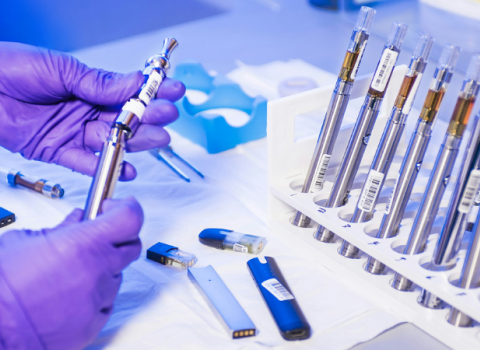
In 2007, the 47 companies in the UK sector underperformed the market as a whole by 36 percent according to analysts Seymour Pierce’s UK Drug Discovery and Development Index. Even companies which signed lucrative partnership deals during the year like Antisoma, Oxford BioMedica and Renovo, or others with drugs on the market like Ardana and Vernalis joined the slide.
It seems fair to assume that a series of black-edged announcements made in the past month only hints at the eventual scale of the damage.
And it is hard to see how the sector can regain its strength anytime soon, given that it had barely recovered from the fallout of the post genomics bust of 2001 to 2003. Apart from unleashing a tide of merger and acquisition activity, that prompted a complete rethinking of business models. Companies did all they could to temper risk, in particular by in licensing marketed or advanced-stage products to provide revenue streams.
Remember also, that this time around products are more mature and thus ought to be more highly valued. But even with the validation – and the cash – that has come from a series of deals with pharmaceutical companies, in the current climate investors are not prepared to take a punt on development stage products that may yet fail to make it to market.
Given this, it is hard to see where the industry can go from here, even were the capital markets to offer renewed support. In the immediate future a number of fire sales seem likely.
The roll call of victims
Indeed, the first of these has already come to pass, in the form of the all-share acquisition of privately held Hunter-Fleming Ltd by Newron Pharmaceuticals, of Milan, Italy.
The UK company, with three potential treatments for neurodegenerative disease in phase II clinical trials, spent all last year trying to raise fresh capital, after being told at the beginning of 2007 that it was not a fit candidate to join the Alternative Investment Market in London. With no cash forthcoming, there was no alternative but to sell up
Newron, which is listed on the Swiss Stock Exchange in Geneva, paid €8 million in newly issued shares on completion of the deal, with a further €17 million to come in the form of more Newron shares, dependent on Bristol-based Hunter-Fleming’s product reaching particular milestones. Not such a great return for the shareholders, who apart from seed money had put in US$30 million in two private rounds.
In the same week CeNeS Pharmaceuticals said it had received an offer to buy the company. CeNeS’ management was in the throes of finding a partner for the lead product, a morphine derivative that boasts a superior side effect profile to the original drug. But with a market capitalisation of just GBP 11 million, it is obviously cheaper to buy the whole company than to offer a fair market value for the Phase III product.
One of the UK’s leading biotechs Vernalis parted company with its CEO Simon Sturge and launched a restructuring that will see it sell off its US operations and cut staff numbers from 210 to 90.
The company’s shares lost more than 85 perc ent of their value in 2007, with the biggest fall in September when it failed to get approval to expand the label of its migraine product Frova as a treatment for menstrual migraine.
This meant that Vernalis did not receive a $40 million milestone payment from its US marketing partner Endo Pharmaceuticals Inc, leaving it unable to repay Endo $20 million of a $56 million loan. The restructuring will see Vernalis settling the loan and divesting other US interests.
Going backwards
Vernalis is very much the product of last major restructuring in UK biotech, having taken in British Biotech, RiboTargets, and Vernalis (which was formerly Vanguard Medica). Now it is in effect regressing five years to become a development stage company once more.
Another mainstay of the UK sector, Ardana put itself up for sale after failing to persuade shareholders to put in more money. The Edinburgh-based company has just £6.6 million in the bank, sufficient for six months at the current burn rate. It is now seeking “to sell or merge in order that the value of its pipeline can be maximised.”
Ardana’s share price has drifted down from £1.23 to 28 pence in the past 12 months.
The company was the exemplar for the low-risk business model adopted to woo investors after the genomics bust. It was formed to commercialise research carried out by the UK Medical Research Council’s Human Reproductive Sciences unit in Edinburgh but has in-licensed both marketed drugs and products in the late stages of development, to cut risk.
Cash, anyone?
Now the late-stage programmes require big infusions of cash to get them through the next stage of clinical development and the company says the three marketed products are not earning enough money to be material to its financing needs.
Ardana is in US partnering discussions on the co-development of its two lead products but despite this has failed to persuade investors to put in more money and hold on for partnerships to be concluded.
Late last week shareholders in the technology commercialisation company Medical Marketing International (MMI) forced Executive Chairman and founder David Best from his post following an independent review of the company’s portfolio.
This found that although there is “good potential” the products are too immature for any partnering deals to be imminent, an assessments at odds with recent statements from Best who said the company was close to reaching what he called, “commercialization trigger points.”
With a little over six month’s cash left, the shareholders have appointed an outsider, Phil Cartmell to replace Best. Shares in the Cambridge-based company more than halved to 32 pence when the news was announced on 22 February.
IDMoS plc, a specialist in disease detection and monitoring technology, is in even direr straits – its money runs out this week.
The bad news is unlikely to end here. Many other companies are short of cash, and with share prices that are a shadow of this time last year, have little chance of finding new funding.





 A unique international forum for public research organisations and companies to connect their external engagement with strategic interests around their R&D system.
A unique international forum for public research organisations and companies to connect their external engagement with strategic interests around their R&D system.